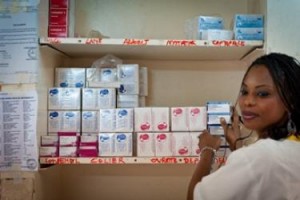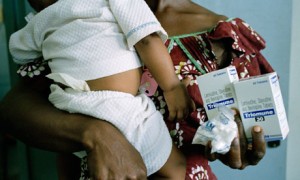July seems like a busy month especially for the global health arena. Besides hearing about the olympics, I have been seeing a lot of coverage lately about major global health initiatives and events that are taking or have taken place around the world. Recently on July 11th, the Family Planning summit was held in London to address the unmet needs of family planning for women living in developing nations. Next week from July 22nd-23rd, the International AIDS conference is being held in Washington D.C. for the first time. Lately, there has been a lot push from non-profit and governmental organizations to address family planning, contraceptives, sexually transmitted diseases, HIV, and AIDS. HIV and family planning are actually quite related to each other. If these topics were integrated with each other, and the divide between the issues is dissolved, both areas would see vast improvements in each area.
How are family planning and HIV related to each other? Well, contraception more specifically condoms help reduce the chance of getting infected with the HIV virus. Because of antiretroviral drugs and  treatments, more HIV positive people are living longer and healthier lives. Family planning can help women who are HIV positive, avoid unintended pregnancies or give them control to plan their own pregnancies when it is right time for them according to their health status. For example, women who are HIV positive are more likely to die not from the virus but rather from pregnancy. Additionally, many women travel very far in developing countries to get healthcare services. It is harder for these women to get access to both family planning and HIV care because not all nearby health clinics provide both services in these areas.
treatments, more HIV positive people are living longer and healthier lives. Family planning can help women who are HIV positive, avoid unintended pregnancies or give them control to plan their own pregnancies when it is right time for them according to their health status. For example, women who are HIV positive are more likely to die not from the virus but rather from pregnancy. Additionally, many women travel very far in developing countries to get healthcare services. It is harder for these women to get access to both family planning and HIV care because not all nearby health clinics provide both services in these areas.
The best way to integrate both HIV and family planning would be offering family planning and HIV services at one local health clinic. Since these services would be more accessible to women, more women would use these services. Also, if nearby clinics provide both services, women would not have  to travel so far and so early to get these services. It would save them time that can be used for something that is more productive. Women will have control over of their reproductive health and their overall wellbeing. Also, providing access to contraception and family planning in sub-saharan countries in Africa would prevent 160,000 HIV positive births. Providing integrated services can provide better results in both areas of global health.
to travel so far and so early to get these services. It would save them time that can be used for something that is more productive. Women will have control over of their reproductive health and their overall wellbeing. Also, providing access to contraception and family planning in sub-saharan countries in Africa would prevent 160,000 HIV positive births. Providing integrated services can provide better results in both areas of global health.
Even though HIV and AIDS is a major international health problem in developing countries, it is important to also include a general focus on other sexually transmitted diseases as well. HPV and other sexually diseases are also a major problem in developing countries. Almost 80-85% of women in Sub Saharan Africa, Latin America, and South Asia die from cervical cancer that is associated to strains 16 and 18 of the HPV virus. The health clinics in these areas lack resources for cervical cancer screenings. According to the World Health Organization, if a women gets screened at least once in her lifetime, her risk of getting cervical cancer are reduced by at least 30%. This is the same situation for other sexually transmitted diseases as well. It is difficult to diagnose and treat other sexually transmitted diseases because lack of resources and infrastructure.
Integration of health services can be very beneficial, resulting in vast advances in the fields of family planning, sexual transmitted diseases, and HIV. Rather than focusing on issues separately, organizations and changemakers should focus on integration of global health issues. Integration of services can be cost effective at the same time and can make a difference in the health of many people living in developing countries that do not have easy access. Integration of health services would similar to killing two birds with one stone. Additionally in the long run, it would enable us to focus on other global health issues that are often undermined. Integration would be a worthwhile investment for the present and even the future.



1 pings
[…] focus as other diseases do specifically AIDS and HIV. This issue was very familiar to me because in one of my prior posts, I had discussed that sexually transmitted diseases especially in developing countries are not […]